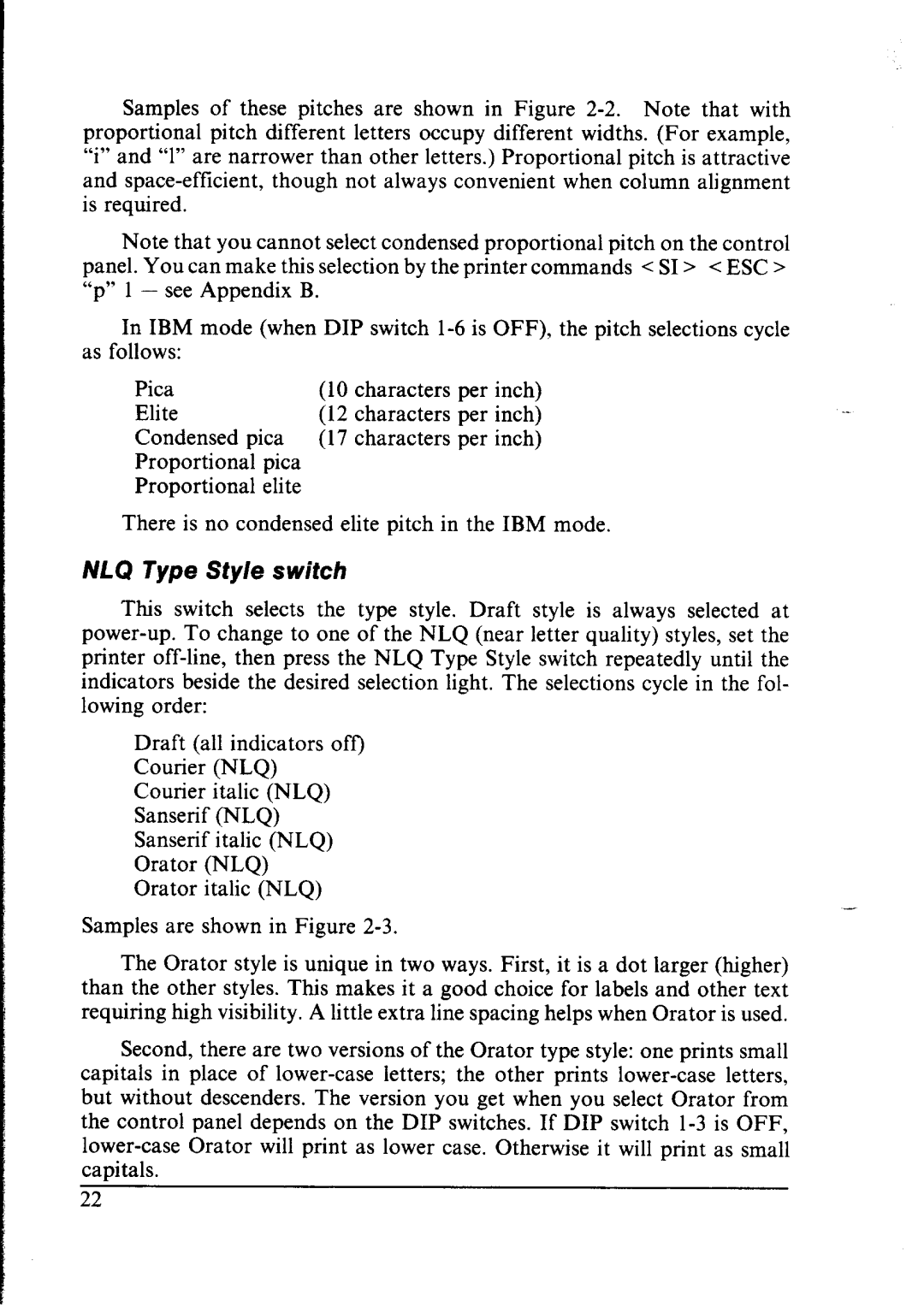
Samples of these pitches are shown in Figure
proportional pitch different letters occupy different widths. (For example,
“i” and “1” are narrower than other letters.) Proportional pitch is attractive
and
Note that you cannot select condensed proportional pitch on the control
panel. You can make this selection by the printer commands < SI > < ESC > “p” 1 - see Appendix B.
In IBM mode (when DIP switch
Pica |
| (10 | characters | per | inch) |
Elite |
| (12 | characters | per | inch) |
Condensed | pica | (17 | characters | per | inch) |
Proportional | pica |
|
|
|
|
Proportional | elite |
|
|
|
|
There is no condensed elite pitch in the IBM mode.
NLQ Type Style switch
This switch selects the type style. Draft style is always selected at
Draft (all indicators off)
Courier (NLQ)
Courier italic (NLQ)
Sanserif (NLQ)
Sanserif italic (NLQ)
Orator (NLQ)
Orator italic (NLQ)
Samples are shown in Figure
The Orator style is unique in two ways. First, it is a dot larger (higher) than the other styles. This makes it a good choice for labels and other text requiring high visibility. A little extra line spacing helps when Orator is used.
Second, there are two versions of the Orator type style: one prints small capitals in place of
